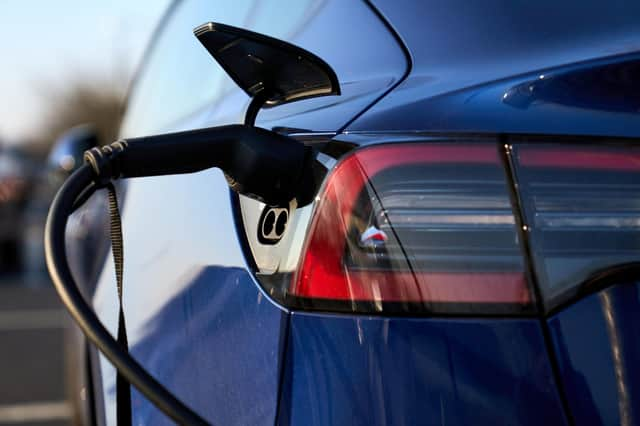Transport for the South East calls for greater collaboration to meet demand for electric vehicle charging


TfSE’s Electric Vehicle Charging Infrastructure Strategy sets out steps to provide sufficient charging points as drivers switch to the use of electric vehicles. The strategy forecasts that up to 28,500 charge points are needed across the TfSE area by 2030.
Portsmouth currently has around 100 public electric vehicle charge points across the city, in car parks and on streets, on a “pay as you charge” basis with hundreds more locations currently being assessed. Portsmouth was named the third most accessible city for electric vehicle charge points in the UK last year.
Advertisement
Hide AdAdvertisement
Hide AdRupert Clubb, lead officer for TfSE, said: “As the government rightly calls for motorists to consider switching to an electric vehicle, we must ensure that there is a plentiful supply of charging points. It is unreasonable to expect people to make the switch without ensuring there are robust plans in place to increase the charging network significantly in the south east and other parts of the county. This can only happen with greater collaboration between the public and private sector with facilitators such as TfSE bringing everyone together.”
The strategy works alongside the government’s commitment to ban the sale of all new petrol and diesel cars by 2030, by facilitating the continued rollout of EV charging infrastructure through local engagement, leadership and planning. It also aims to realise TfSE’s vision of achieving net zero by 2050 at the latest. The strategy and accompanying action plan received approval from TfSE’s Partnership Board earlier this year. Both documents were developed through working with local authorities, including Hampshire and Portsmouth councils, distribution network operators, charge point operators and other key stakeholders from across the south east region.
TfSE’s roles will include acting as a facilitator to spread information, ensuring the strategy, action plan and technical work is reviewed and up-to-date and providing a platform for targeted engagement and on-going support for Local Transport Authorities (LTAs) with the development of their individual Electric Vehicle Charging Infrastructure Strategies.